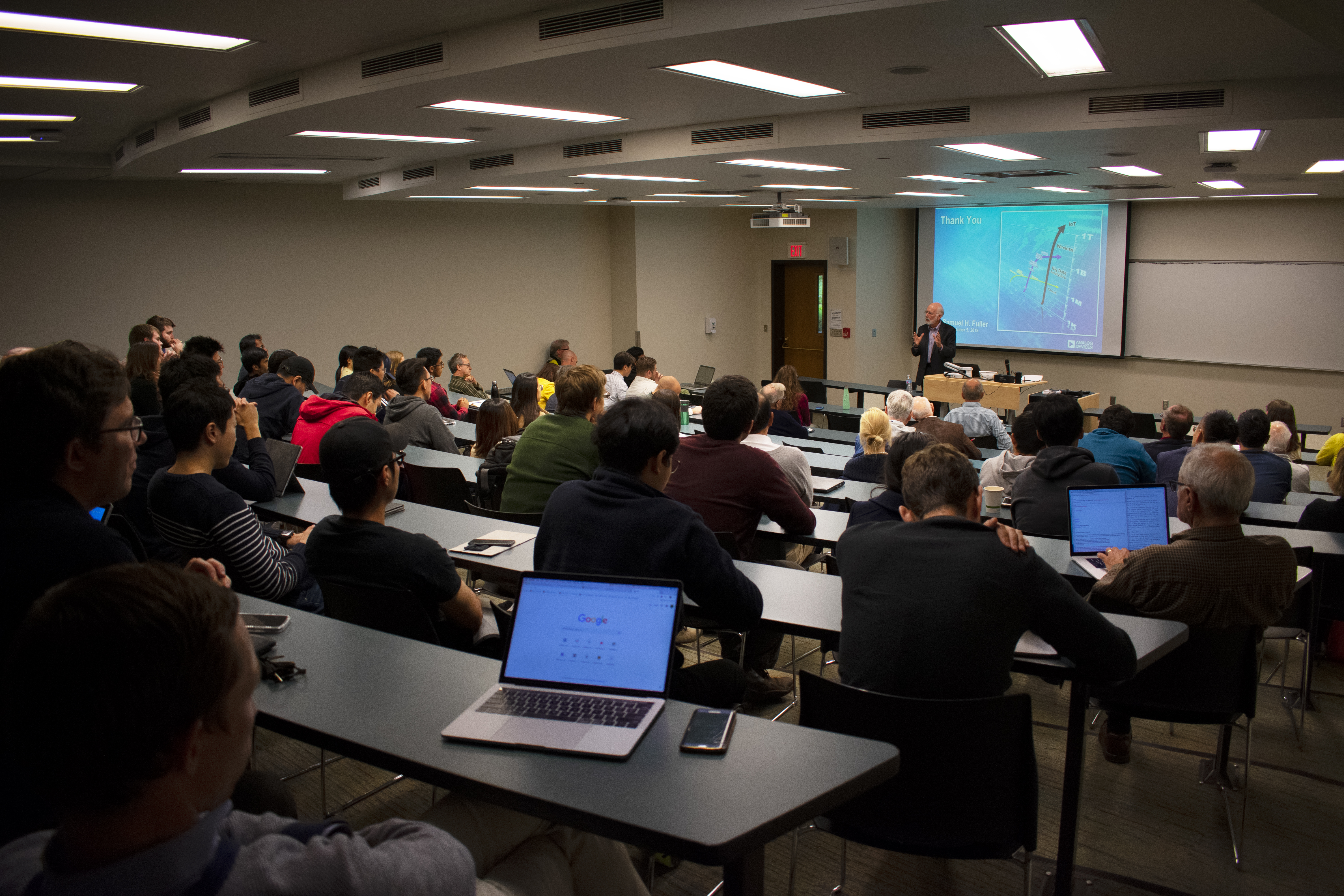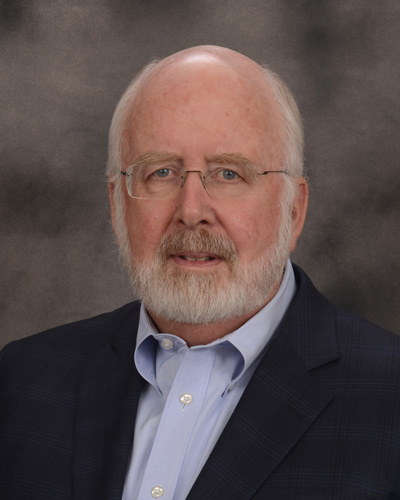Computing visionary honored by Michigan Engineering
The highest accolade from the Michigan Engineering Alumni Board goes to a thought leader with a track record of predicting the industry’s future.

 Enlarge
Enlarge

 Enlarge
Enlarge
Samuel H. Fuller, a thought leader in computing who counts among his achievements a key role in developing one of the first internet search engines, has received Michigan Engineering’s 2018 Alumni Award.
The award is the highest accolade given by the Michigan Engineering Alumni Board.
Fuller earned a bachelor of science in electrical engineering from U-M in 1968. He is an electrical engineer, computer scientist, teacher, mentor, author, business leader and lifelong innovator, his nominators say. He is currently CTO emeritus and distinguished scientist at Analog Devices, Inc, a multinational semiconductor company where, as CTO, he created a product strategy connecting the physical world to the power of the digital world that include sensors, silicon and software.
Prior to ADI, Fuller was the vice president of research at Digital Equipment Corporation. There he founded and led the firm’s global research organization, fostering disruptive innovations including the development of RISC computers, the Altavista search engine, the advancement of networked computing, and the commercialization of Ethernet in partnership with Xerox PARC, Intel and 3COM. He also developed collaborative projects with leading research universities. He was a co-founder of Project Athena at MIT that deployed advanced, networked workstations, resulting in the development of the X Windows System for workstations and the Kerberos authentication system that is widely deployed today, including by U-M.
In 1991, Fuller was elected to the National Academy of Engineering for contributions to computer architecture, performance evaluation, and creative leadership in research management.
“In his decades of leadership both in academia and industry, Sam has shown extraordinary achievement from the earliest days of computing to the modern era of the Internet of Things,” said Mingyan Liu, the Peter and Evelyn Fuss Chair of Electrical and Computer Engineering. “He has brought distinction to Michigan Engineering.”
In his decades of leadership both in academia and industry, Sam has shown extraordinary achievement from the earliest days of computing to the modern era of the Internet of Things.
Mingyan Liu, the Peter and Evelyn Fuss Chair of Electrical and Computer Engineering
Fuller received his master and doctoral degrees from Stanford University. He was a faculty member at Carnegie Mellon University from 1972-1978.
“Sam has an amazing track record of predicting the future of engineering,” said Kevin Fu, associate professor of computer science and engineering who nominated Fuller.
“He predicted the need for online security and graphical computer displays back in the day when our computers were terminals that displayed fuzzy green text. He created the first campus-wide information systems at MIT, the precursor to the notion of computing as a distributed service. This project led to the first enterprise authentication system (think passwords) that has now blossomed into dozens of companies (including Duo Security and RSA Security), file systems (such as AFS, used at Michigan) and billions in economic growth. This project also created the X Windows System for graphical displays, the precursor to systems such as Microsoft Windows and Apple’s MacOS X that we all now take for granted.”
Fuller now leads international efforts for protecting the Internet of Things with embedded security.
The Michigan Engineering Alumni Board (MEAB) serves the college and its 80,000 alumni by offering knowledge, hands-on service, network connections, passion and resources in the pursuit of the College of Engineering’s vision and mission.
 MENU
MENU 
